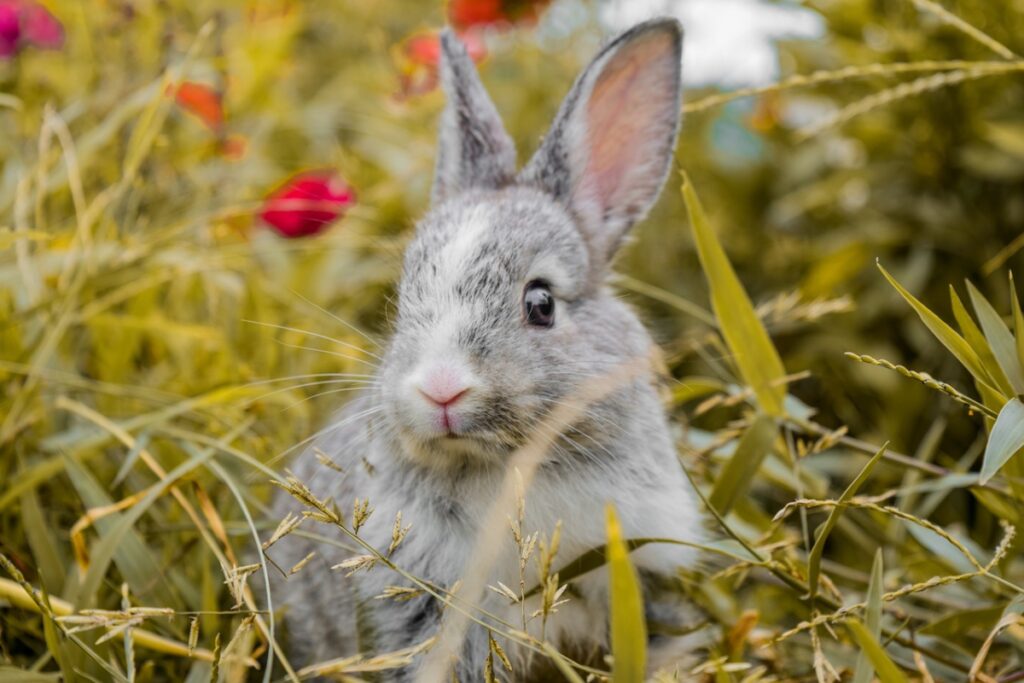Rabbits are out and about all year long, feasting on all kinds of plants. Unfortunately, these adorable hopping herbivores can wreak havoc on your garden.
Here are a few easy tips to identify rabbit damage, plus some humane methods to prevent Peter and his pals from pilfering your plot for dinner.

How to Tell You Have Long-eared Eaters
There are various animals and pests that will munch on your plants, so how can you tell the damage is done by rabbits? Well, rabbits make clean, 45-degree cuts in young stems — and these cuts will never be found more than 3 feet high due to a rabbit’s reach.
Meanwhile, any damage that shows signs of tearing can indicate a deer problem.
Plants Rabbits Avoid
Luckily, there are a few plants rabbits avoid. Specifically, plants that give off a strong fragrance or are more textured are not very popular with rabbits.
Here are a few examples to get you started. Of course, it’s good to note that this list is not exhaustive, just a place to help you get started protecting your garden!
Vegetables
Rabbits won’t eat vegetables that are aromatic, members of the nightshade family, or have thorns. A few of those include:
Trees and Shrubs
A few trees and shrubs that rabbits don’t care for include:
- Spruce
- Juniper
- Fir
- Butterfly Bush
Other Plants
Finally, for those looking to add some flowers to the garden, here are a few that rabbits tend to shun:
- Ageratum
- Black-eyed Susan
- Foxglove
- Ginger
- Lamb’s Ear
- Lavender
- Zinnia
Smart Planting
Although these plants won’t completely deter rabbits from grazing, they do make things a bit more difficult, especially if thoughtfully placed.
Make sure to interplant fragrant plants, plants with more textures, and toxic plants into your gardens. By interplanting this way, you’re more likely to confuse and repel rabbits, keeping your garden safe.
Want to know more about gardening? Check out Senior Security Alliance USA on both on Facebook and Twitter.
